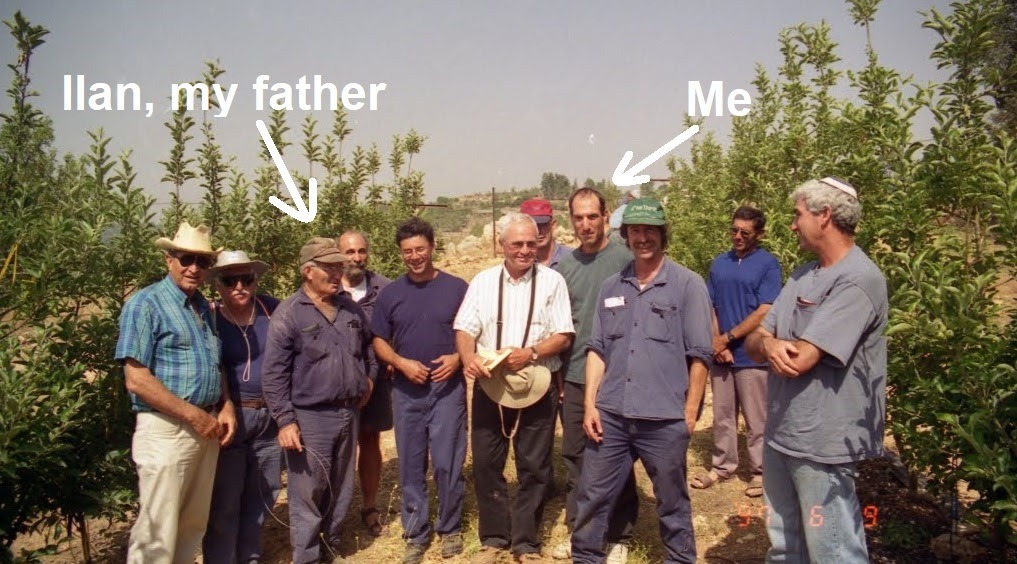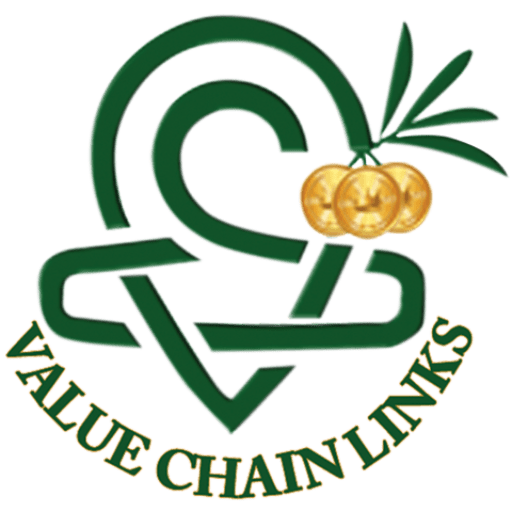WHY OUTSOURCING & PROTOCOLS ARE THE FUTURE?

BY DR. NIMROD
Father, I was blessed knowing, learning, and working with you for so many years. (Ilan 31.8.1932 – 20.8.2021)
This column is dedicated with love and respect to my father, Ilan Israely, who passed away tonight (as a result of pneumonia). I spent time with him in the orchards before I could walk, and later we worked many years side by side. Aside of being my father, he was a teacher, a mentor, a colleague, and a good friend. Nimrod
FARMERS’ CORE ACTIVITY
From my early days in agriculture, my father always told me, “Our job is to grow the best quality produce so we will get the best prices and the best financial results.”
What does it mean in practice?
In practice, as a farmer, most of my time was dedicated to dealing with “technical” matters, such as spraying, mowing, irrigation, fertilizing, pruning, harvest, and taking care of the machinery.
I wondered if going to the garage and fixing my tractors should be my main concern as a farmer.
Is this the focus, the “core activity” my father was talking about?
Is it possible to be a farmer without having your own sprayers?
If I don’t spray am I still a farmer?
If someone else is doing the mowing/irrigation/crop protection/harvest… for me, am I a better or worse farmer?
If I don’t do the technical activities involved in crop protection, then who will?
Could anybody do it better than me?
I wondered if farmers can do things differently, better?
How is it working with other industries/professionals that are doing better than farmers?
What enabled other industries to do so much better than agriculture?
A WRITER: THEN AND NOW
A writer is not a farmer. Yet, in the old days, both had a lot of work before the world got to see the fruits of their work.
In the past, if you were a writer, you would have to work hard to have the technical means to practice your “core activity,” writing and sharing your ideas.
There were times when being a writer involved very laborious preliminary technical work before writing a single word, e.g., learning the skills of writing, make your table, chair, ink, inkwell, feather pen and of course, you had to have a cloth or other material on which you will write.
That was years ago, but how is it to be a writer nowadays?
Technical work involved in writing? Nearly zero; you turn on the computer, open Word, and seconds after, you start writing. And if you write for others to see, you have the internet to help you deliver the message within seconds.
When you take out of the equation the “technical” parts, everybody is equals and the difference between writers is mainly related to the content (quality) and frequency (quantity).
This revolution became possible when people (and writers) understood that by “outsourcing” the technical matters related to writing, they would benefit by enabling themselves to focus more on their “core activity.”
Many companies offer solutions to all kinds of “writers”. The most common solution we get to technical matters related to writing is when we buy a computer equipped with a word processor and connect it to the internet.
By outsourcing their technical activities, writers have more available time to focus on their “core activity”, improve its quality, quantity, and availability.
Does this help writers’ business aspects? Sure YES!
A FARMER: THEN AND NOW
Like the writers, most industries and professions “got rid” of “non-core activities” to specialize in their “core activities”.
They all do it by “outsourcing” part of their activities to commercial companies that can do the same or even better, because they make your “non-core activities” into their “core activity” and expertise.
Where is the agro-sector concerning that, meaning focusing by outsourcing “non-core activities?
While the agro-sector modernized itself, it maintained the counter-productive way of thinking that a farmer should do everything by himself.
Today, like thousands of years ago, farmers do everything by themselves while outsourcing nearly nothing of their “non-core activities”.
As a farmer, I know that it is easier to drive a tractor than riding a horse, and undoubtedly your productivity is improved when you use a tractor. But is that mean that driving a tractor or spraying is part of your “core activity”?

As long as we continue to do everything without outsourcing the “non-core activities”, we cannot specialize in our “core activities”. Without specializing, farmers’ future seems to be gloomy.
Sometimes we should learn from others – even if they are not farmers.
“Focusing is about saying no“. (link)
Steve Jobs
What happens when you don’t specialize? You find yourself doing activities that do not contribute to your “core activity”. It takes more time and effort while the result is usually not as good.
For example, for years, I was busy with tractors and sprayers, spraying pests. I invested so much of my time and effort into it until I became an expert in this domain, i.e., low-volume and very low-volume spraying, writing articles, and giving lectures to educated others.
Years passed, and now I ask myself and you, “Why at all a farmer should deal with tractors, sprayers, and chemicals? What if the farmer would outsource crop protection? Would it mean that he is no longer a farmer?”
The fact is that some advanced farmers do outsource many of their activities, e.g., crop protection, fertigation (fertilizing and irrigation), pruning, and they are still “farmers”, outstanding farmers.
The truth is that, unlike other professions, a farmer doesn’t have a broad repository of Solution Providers and in many cases, they have none to turn to.

TO WHAT WILL WE SAY “NO”?
A farmer shouldn’t be a real expert in technical equipment or technologies, no more than a knowledgeable worker operating or using specialized equipment, e.g., we don’t expect a software worker to know how to build and fix computer hardware.
To specialize, a farmer must outsource every possible activity until left with only his “core activities”, the part that brings him the highest added value.
Now you may ask – “What and how do I outsource?”
Simple, you buy a solution from a professional solution provider, one that will give you the RESULT that you want and need.
*** A Protocol is a solution that provides you with the end result that you need, even under changing conditions and environment. ***
Companies that provide those protocols are usually very professional and will deliver better results than farmers (by themselves) would otherwise achieve.
The most prominent biological control companies, e.g., Biobest and Koppert, are already providing pest management protocols.
I am certain that in the future, the concept of buying a Protocol will penetrate and become a standard part of “conventional” farming, as it did in Israel and now is ALSO widely applied in… Senegal as part of Biofeed’s Green Valley activities.
Be it a writer, a manager, a pilot, a physician, a farmer, or any other profession, the direction is clear; in the 21st Century, one needs to be an expert to add value. No one should and can do everything by himself.
Today, even the experts need to choose a narrower field of expertise within their existing area to remain real professional specialists and “experts”.
The rest will be done by outsourcing specialists and professionals. Note the number of medical experts, legal lawyers specializing in narrow scopes, etc.
The way to increase your expertise and improve your results is by outsourcing everything which is out of your narrow core specialization and activity.
DEVELOPING A SOLUTION
When I founded Biofeed, it was after being a farmer since childhood, 15 years in the academy researching fruit fly ecology, and long years of working with crop protection officers and extension service experts in Israel and other countries.
I never dreamed of establishing a company that would develop, manufacture, and sells crop protection equipment and technologies. This was never my goal.
Through my life experience and education, I articulated my goals and vision. They were always related to providing a full solution to farmers’ problems so farmers too can sleep better at night and get better financial results in the morning.
You achieve this by defining and developing particular protocols to solve particular problems, often by using particular technological tools along with know-how and specific methods.
Biofeed and Green Valley vision emphasize solutions, not technologies or equipment.

| Whether farmers, crop protection officers, extension services, or experts, everybody is facing problems and looking for solutions to their specific problems.Using this attitude, Biofeed was always oriented towards developing solutions rather than a standalone products.This attitude took shape when in early 2000, Biofeed began working with the Israeli Ministry of Environment under the Green Valley fruit fly control protocol.This protocol was later adopted, nearly as-is, by the Israeli Ministry of Agriculture and applied throughout Israel as a standard.Today, Israel is the #1 country for the rate of orchards using alternative non-spraying control solutions to fruit flies.Biofeed had not paused there but continued developing the fruit fly protocol for endemic (established) fruit fly populations. Today, our advanced flagship protocol for managing endemic fruit fly populations is the – Fruit Fly Certified Trade Zone (FFCTZ).Being part of the Green valley program, the FFCTZ protocol is now successfully applied in Africa for the simultaneous management of three fruit flies; Bactrocera dorsalis, Ceratitis cosyra, and Ceratitis capitate.Currently, the FFCTZ protocol applied in Africa is the only solution enabling the export of mangoes, free of sprays and fruit fly infestation, year-round to premium markets. 3 TYPES OF FRUIT FLY PROTOCOLSWhen it comes to fruit flies, there is a need for 3 types of protocols:* Management of endemic populations.* Prevention of invasion.* Eradication before establishment.The 2nd and 3rd protocols can’t be applied by individual farmers but due to their nature, only by nations at the country level.Biofeed built itself as a power-house providing specialized protocols for all the three types of the above-listed fruit fly common problems and all species of fruit flies.Biofeed is excelling in the rapid development of technological control and monitoring solutions (which is always part of a fruit fly protocol).Based on our long time and real field experience, there is no farmer too small or country too big to apply tailor-made protocols to its demands and needs.What is the Protocol that you need the most? |
| TAKEAWAY» Outsourcingis the way to keep the focus on your “core activity” and becoming or remaining an expert in your field.» Farmers must outsource every possible activity, or else they have little chance to survive in “a world of experts”.» Developing and offering farmers with required PROTOCOLS is the most significant business opportunity in recent years for companies related to the agro-industry and the best way to help farmers. |
| Please, if you found value in this article, it would mean a lot to me if you send me a comment and share it with your friends. |
